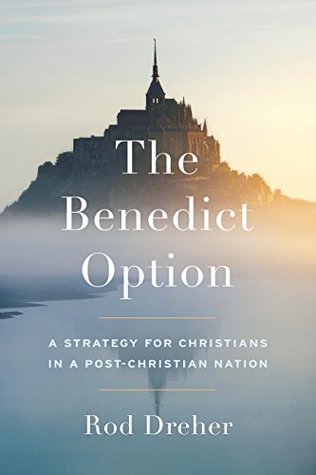More on this book
Community
Kindle Notes & Highlights
Our scientists, our judges, our princes, our scholars, and our scribes—they are at work demolishing the faith, the family, gender, even what it means to be human.
What these orthodox Christians are doing now are the seeds of what I call the Benedict Option, a strategy that draws on the authority of Scripture and the wisdom of the ancient church to embrace “exile in place” and form a vibrant counterculture.
This is not just about our own survival. If we are going to be for the world as Christ meant for us to be, we are going to have to spend more time away from the world, in deep prayer and substantial spiritual training—just as Jesus retreated to the desert to pray before ministering to the people.
In the mind of medieval Christendom, the spirit world and the material world penetrated each other. The division between them was thin and porous. Another way to put this is that the medievals experienced everything in the world sacramentally.
The entire universe was woven into God’s own Being, in ways that are difficult for modern people, even believing Christians, to grasp. Christians of the Middle Ages took Paul’s words recorded in Acts—“in Him we live and move and have our being”—and in his letter to the Colossians—“He is before all things and in Him all things hold together”—in a much more literal sense than we do.
In his final book The Discarded Image, C. S. Lewis, who was a professional medievalist, explained that Plato believed that two things could relate to each other only through a third thing. In what Lewis called the medieval “Model,” everything that existed was related to every other thing that existed, through their shared relationship to God. Our relationship to the world is mediated through God, and our relationship to God is mediated through the world.
Psychology did not necessarily intend to change a man’s character, as in the old Christian therapies of repentance as a step toward conforming to God’s will, but rather to help that man become comfortable with who he is.
And we men and women are participants in God’s unfolding Creation, by ordering the world according to His will.
Christian liturgies, on the other hand, should lead us to desire communion with God. The basis for our liturgies is the one who unites the medium and the message of the Gospel: Jesus Christ.


